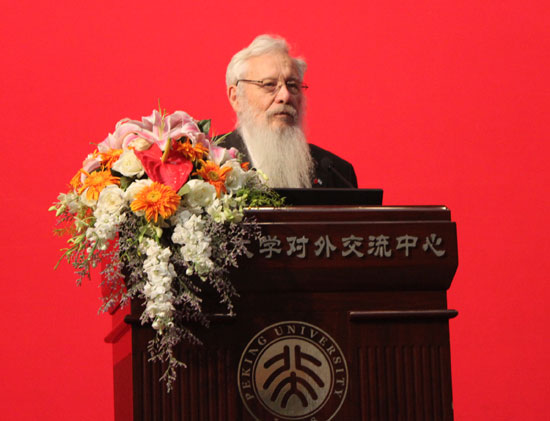Nobel laureate warns against improper measures to fight financial crisis
|
|
|
Nobel Prize winner Professor Robert J. Aumann speaks at the Peking University on May 10, 2010 in Beijing. [Pang Li/China.org.cn] |
Lower pay for company executives nor government bailouts are good solutions for the financial crisis, said Robert Aumann, who received the 2005 Nobel Prize for Economics, in a speech Monday.
Aumann, a mathematician and professor at Hebrew University in Jerusalem and Stony Brook University in New York State, was speaking at Peking University on the global financial crisis.
He said cutting salaries would interfere with the market. "Anything that interferes with the market is not a good idea," he said. Instead, he recommended changing the components of compensation. Executives, who get special stock options, are putting personal interests beyond corporate interests, Aumann said. But executives who are offered stocks – rather than stock options that allow them to avoid personal losses by not buying stocks when their companies aren’t doing well – would put their returns in the line with those of their companies.
As for the bailouts, the professor said they are like "mortgaging future for the present" and not based on long-term considerations. He denied that there is an obvious link between the massive bailouts and signs of recovery in some Western countries.
Aumann said bailouts also send the wrong message of encouraging companies to take unreasonable and insured risks. "They give the wrong incentives," Aumann said. "If the risk turns out well, you put the money in your pocket; if it turns out poorly, the government will bail you out."
He also warned that the bailouts could cause inflation.
The credit default swaps that companies use to insure each other have the potential to cause a domino effect when one company collapses, which is what led to the current financial crisis, Aumann said. If governments want to regulate, they should regulate insurance and the credit default swaps, he said, and not against risk-taking, which is essential for a market economy to operate.
 0
0 







